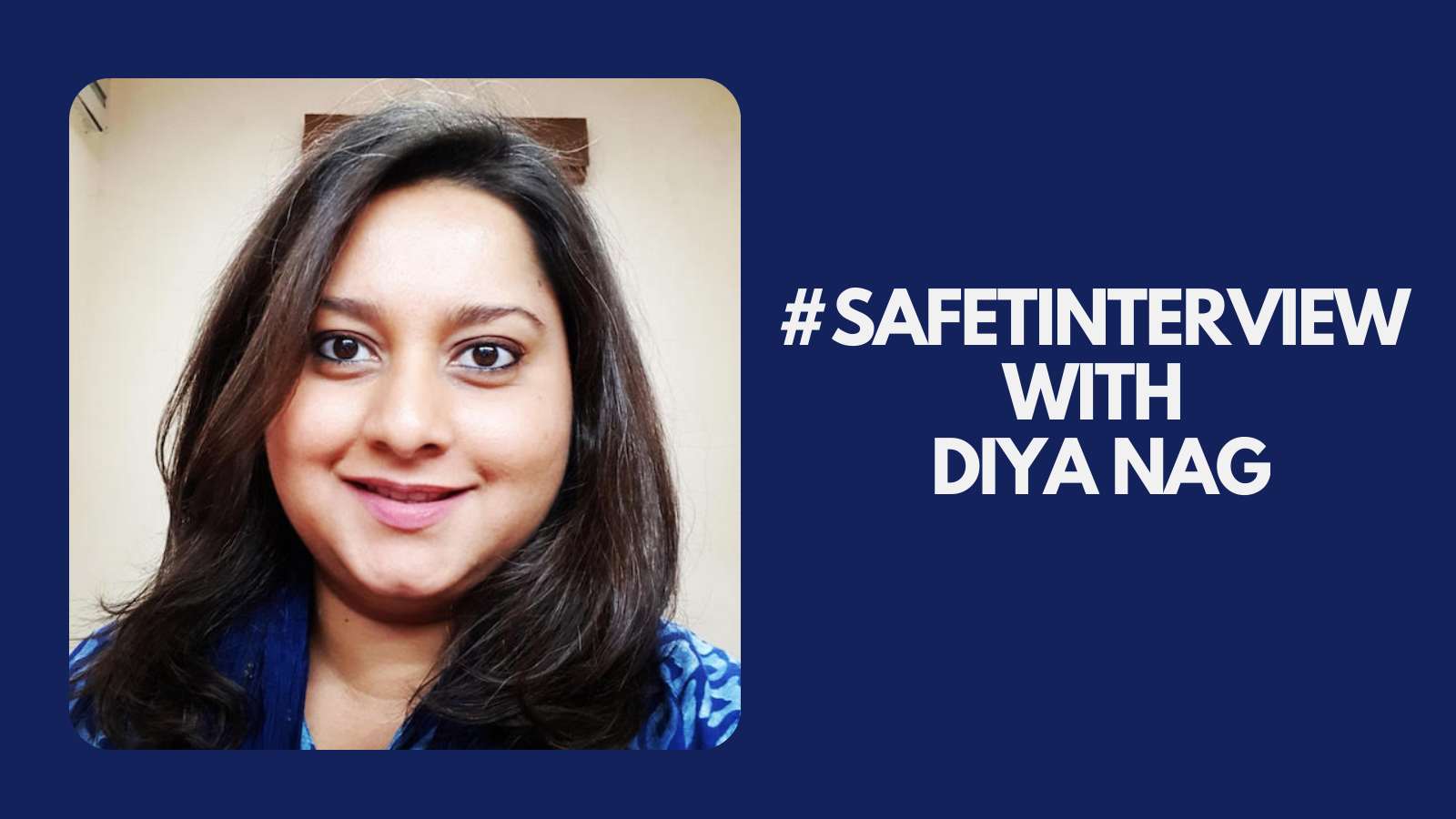
04 Oct #SAFETINTERVIEW with Diya Nag
Diya Nag is a Senior Program Officer with The Asia Foundation’s country office in New Delhi. She is a development professional and lawyer. She has studied Human Rights and Sociology, has a Juris Doctor with a specialization in Global Law and Practice and is a member of the New York bar, First Appellate Division. She has accomplished so much with her work and I’m thrilled that we got the opportunity to speak with her. Keep reading to know more about her views on gender stereotypes and the progress for women in the last year!
Q. What does #BalanceForBetter mean to you?
For me, #BalanceforBetter means there needs to be more equality, not just between the various genders, but between the mainstream and the marginalized. #BalanceforBetter means everyone gets an equal chance to work, live, play, learn, thrive, and enjoy life.
Q. Do you see a gender disparity within your work circle or friends’ groups? If yes, how do you tackle it? If no, what is your view on it?
I am 36, which means many of my friends are new parents. If one spouse has to take a backseat from their career and focus more on childcare, it is usually the mother. I’ve tried to change this by calling attention to this gendered decision, privately. Sometimes it works, sometimes people just shrug and move on.
Q. How do you think women participation in public spaces has improved in the last few years?
It has increased, but that is inevitable. The women’s movement has never regressed, only progressed. We need to make sure more women are participating in the workforce, though. Women’s unpaid work is still unaccounted for.
Q. What progress have you seen for women in the last year?
The #MeToo movement brought attention to the issue of sexual harassment in the workplace like never before. Women have been experiencing this for decades but in 2018 we all stood up together, and said enough is enough!
Q. If you could give out a message to all the young women out there just entering the work field, what would it be?
Stand up for yourself as a woman in these three ways:
1) Argue for raises and promotions when you feel you deserve them;
2) Demand flexibility from your employer to accommodate for child and elder care responsibilities and/or pregnancy; and
3) Fearlessly call out sexism / gender bias when you see or experience it

